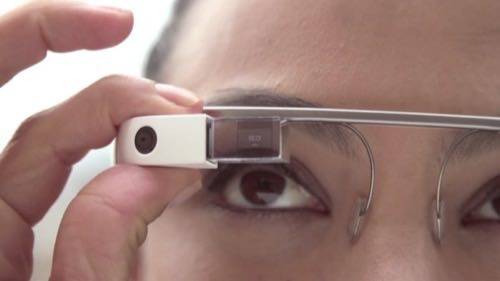
If Google is making us stupid, Google Glass is destined to make us even stupider. While consistent with Google’s mission to “organize the world’s information and make it universally accessible and useful,” Google Glass may actually be too much of a good thing. Way too much.
Jay Yarow describes Glass as “a product plagued by bugs, and of questionable use, that’s generating a lot of buzz because people want so desperately to have some new gadget to latch onto, and fear being wrong about the next major technology trend.” Perhaps. But whatever its faults (battery life, tends to cause headaches, etc.), Google Glass’ biggest fault may well be its biggest feature:
Information overload.
By constantly presenting Glass wearers with information, or the opportunity to get information, Google manages to over-deliver on its mission statement at a time when we actually rely on Google to filter out noise, rather than fill our lives with more noise. As I wrote in 2007, the secret to Google’s business model is to embrace the abundance of the Internet’s information overload but then remove the detritus and give me only what I want, when I want it, and serve up context-relevant advertising.
But by sticking a computer on my face, always on and always connected, Google has ruined this model by giving me far more than I want, all the time, and diminishing my control of the flow of Google-provided information.
Google Now gets the balance nearly perfect. Google Now anticipates my information needs based on where I’m going, what I have on my calendar, the time of day, etc. It’s genius, and it’s particularly useful because it lets me discover its magic on my own terms; that is, I have to actually look at my smartphone. Robert Scoble may see this as a downside, but it’s a serious upside. When I have to look, I’m in control of the information. When the information forces itself into my view, I’m a slave to it.
Google Now is Google at its best. Google Glass? Perhaps Google at its worst, shoving information at me and never letting me disconnect from the Internet completely.
Nor will it end here. Google co-founder Sergey Brin has stated that “We want Google to be the third half of your brain.” I doubt many people will be enthusiastic about this, no matter how much Google anticipates my wants and needs and serves up ads against them, 24×7. With Glass, Google has taken a step too far toward pushing information on its users rather than letting them control the flow of information.
In short, Glass is way too much Google for most of us. And that is the major reason I expect it to fail.

















